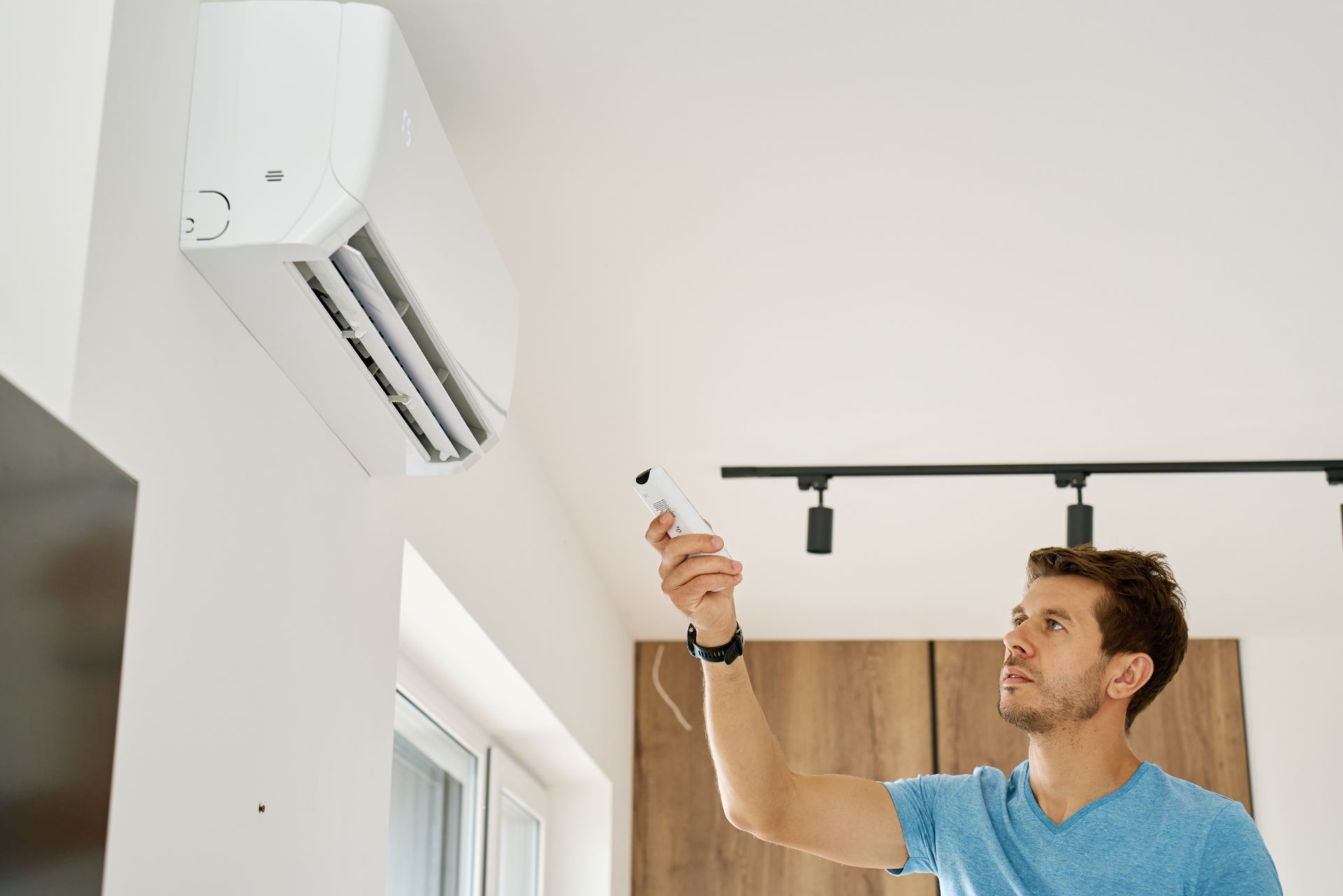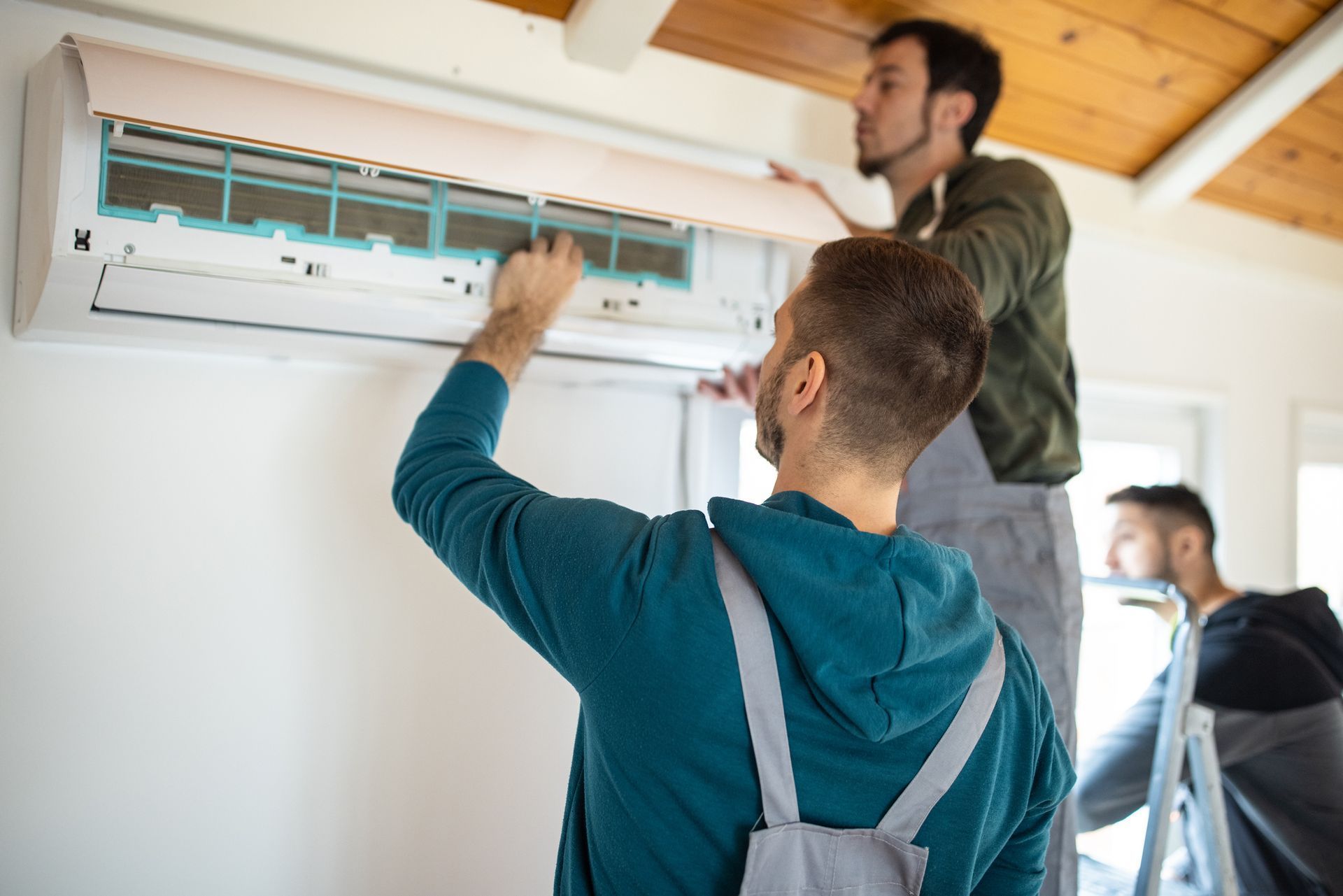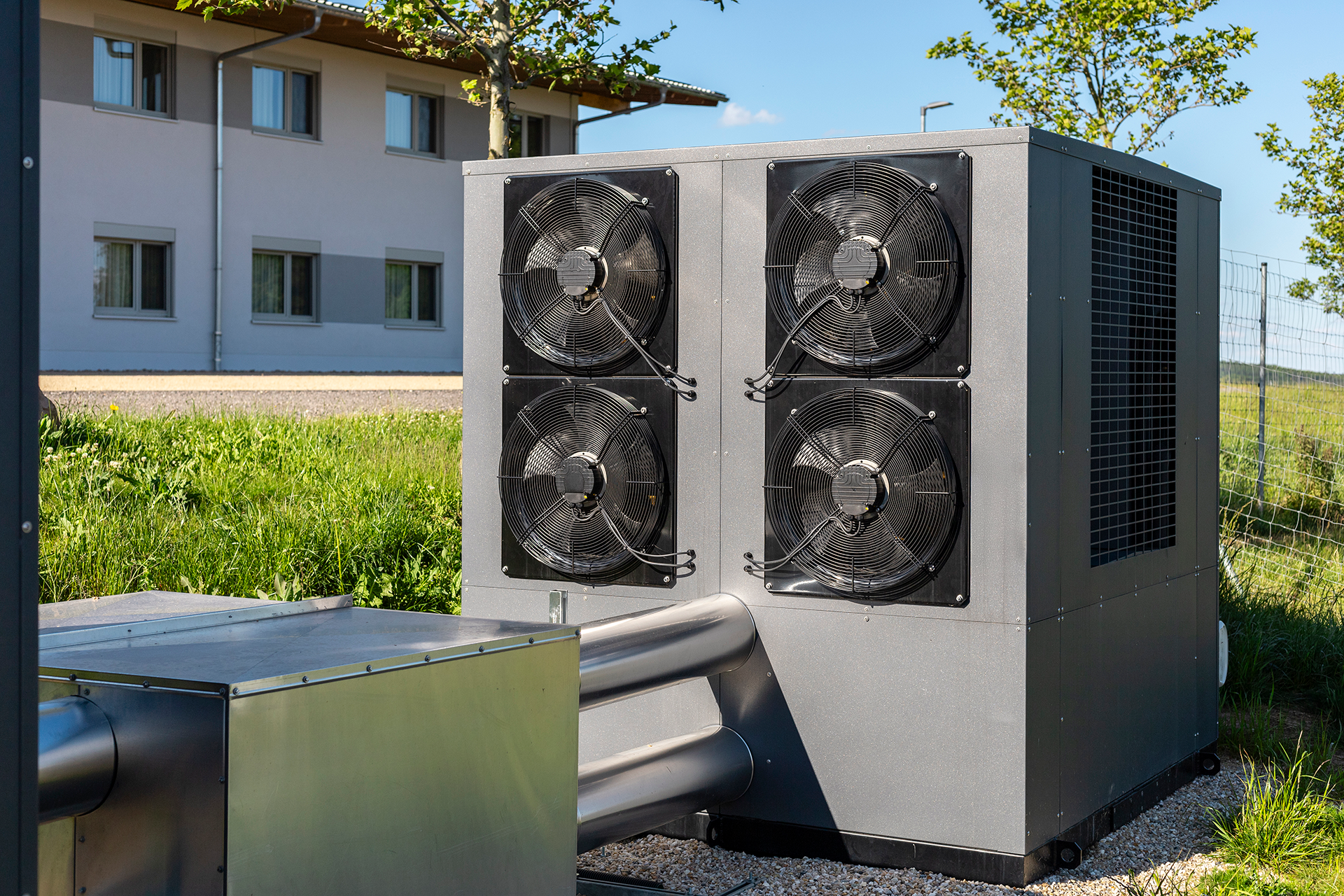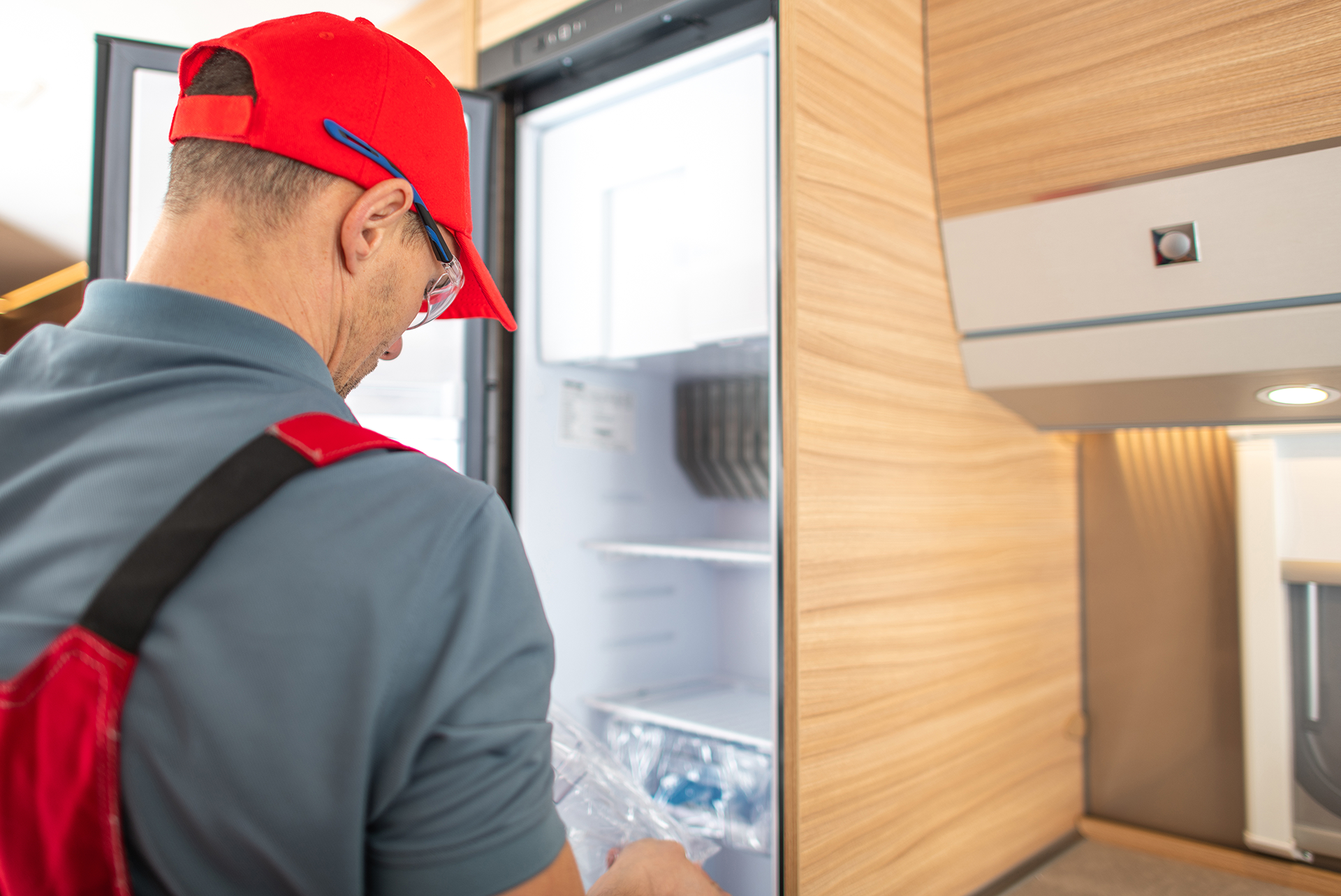One costly accident can shut down a mini split installation business overnight. Imagine a refrigerant spill leading to a $30,000 claim with no insurance to cover the damage. This scenario is all too real for many HVAC contractors, underscoring why having the right business insurance isn’t just smart-it’s vital for survival. The HVAC industry faces over 25,000 claims annually, with losses exceeding $1 billion each year. For mini split installers, navigating insurance options can be confusing, but understanding your risks and coverage needs will protect your business and peace of mind.
Before diving into policies and premiums, it’s worth noting that insurance requirements vary by state and the specific services you offer. For example, in Texas, HVAC contractors with a Class A License must carry general liability insurance with minimum coverage of $300,000 per occurrence and $600,000 aggregate. Knowing your local regulations is the first step toward compliance and protection. Texas HVAC insurance requirements provide a clear example of how state rules shape coverage needs.
Why Business Insurance Is Essential for Mini Split Installers
Mini split installation involves handling refrigerants, electrical components, and working in clients’ homes or businesses. These factors expose installers to several risks, including property damage, bodily injury, and environmental hazards. Without insurance, a single claim could wipe out your business finances.
Consider the case of a refrigerant spill costing $30,000. Without insurance, that expense comes straight out of your pocket, possibly forcing you to close shop. This is not hypothetical—experts warn that uninsured HVAC contractors face such “claim nightmares” regularly. Industry insights highlight the devastating impact of uninsured claims on HVAC businesses.
Moreover, the HVAC industry’s high claim frequency—over 25,000 annually—means risks are not rare. Claims average between $25,000 and $50,000, adding up to more than $1 billion in losses every year. This makes proper insurance coverage a critical safety net for mini split installers who want to avoid costly out-of-pocket expenses.
In addition to protecting against financial loss, business insurance can enhance your credibility with clients. When potential customers see that you are insured, they may feel more confident in hiring you, knowing that you are prepared to handle any mishaps that may occur during installation. This peace of mind can be a significant selling point, especially in a competitive market where trust and reliability are paramount. Furthermore, some clients, particularly commercial ones, may require proof of insurance before they will even consider your services, making it not just a safeguard for you but also a prerequisite for securing contracts.
Additionally, business insurance can cover various aspects of your operations beyond just liability. For instance, equipment insurance can protect your tools and machinery from theft or damage, which is crucial for mini split installers who rely heavily on their equipment to perform installations efficiently. Similarly, workers' compensation insurance is vital if you have employees, as it provides coverage for medical expenses and lost wages in case of work-related injuries. This comprehensive approach to insurance not only safeguards your business but also fosters a safer working environment for you and your team.
HVACInsure is fully licensed and permitted to sell contractor and commercial insurance in USA.
We proudly serve clients throughout the United States and maintain partnerships with local Texas insurance carriers to ensure HVAC professionals receive compliant, affordable, and comprehensive coverage that meets project and regulatory requirements.
Understanding the Types of Insurance Coverage You Need
Mini split installers should consider a combination of insurance policies tailored to their unique risks. Here’s a breakdown of the most important coverages:
General Liability Insurance
This is the foundation of your insurance portfolio. It protects against claims of bodily injury or property damage caused by your work. For example, if a client slips on tools you left behind or if your installation damages their property, general liability covers legal fees and settlements.
Most HVAC contractors pay between 1.3% and 2.6% of their annual revenue for general liability insurance. The exact cost depends on your business size, location, and claims history. In some states like Texas, minimum coverage requirements are set by law, so it’s important to check local mandates. Insurance.org explains these typical costs and coverage levels. Additionally, having a solid general liability policy can enhance your credibility with clients, as it demonstrates a commitment to professional standards and risk management.
Workers’ Compensation Insurance
Working with electrical systems and refrigerants comes with injury risks. Workers’ compensation insurance covers medical expenses and lost wages if an employee gets hurt on the job. Even if you’re a solo operator, some states require you to carry this coverage once you hire employees. This insurance not only protects your workers but also shields your business from potential lawsuits related to workplace injuries.
Moreover, investing in a robust workers’ compensation policy can lead to a safer work environment. Many insurance providers offer resources and training programs aimed at reducing workplace accidents, which can ultimately lower your premiums over time. Understanding the nuances of this coverage is crucial, as it varies widely by state and industry.
Commercial Auto Insurance
If you use a vehicle to transport tools and equipment, commercial auto insurance protects against accidents involving your business vehicles. Personal auto policies usually exclude business-related incidents, so this coverage is essential. This type of insurance not only covers accidents but also provides liability protection in case of damage to third-party property or injuries to other drivers.
Additionally, commercial auto insurance can include coverage for rental vehicles, which is particularly useful if your work requires you to travel long distances or if your primary vehicle is in the shop. Understanding the specific needs of your business can help you choose the right policy and avoid gaps in coverage.
Equipment and Tools Insurance
Mini split installation requires specialized equipment that can be expensive to replace or repair. Equipment insurance covers theft, loss, or damage to your tools, ensuring you can keep working without a costly interruption. This is especially important for contractors who rely on high-value tools that are essential for completing jobs efficiently.
In addition to covering physical damage, some policies also offer coverage for loss of income due to equipment failure. This means that if your essential tools are damaged or stolen, you won’t face financial ruin while waiting for replacements. Investing in this type of insurance can provide peace of mind, allowing you to focus on delivering quality service to your clients.
Environmental and Refrigerant Liability
Handling refrigerants involves environmental risks regulated under laws like Section 608 of the Clean Air Act. Certified technicians must follow strict protocols to prevent leaks and contamination. Insurance that covers refrigerant spills and environmental cleanup costs can save your business from severe financial penalties. Section 608 certification is mandatory for anyone servicing refrigerants, emphasizing the importance of proper handling and insurance.
Moreover, as environmental regulations become increasingly stringent, having this specialized coverage can set your business apart from competitors. It demonstrates a proactive approach to environmental stewardship, which can be a significant selling point for eco-conscious clients. Additionally, some insurers offer risk management services that help contractors implement best practices for handling refrigerants, further reducing the likelihood of incidents and claims.

How Much Does HVAC Business Insurance Cost?
Insurance costs vary widely based on coverage types, business size, location, and risk factors. On average, HVAC business insurance ranges from $652 to $5,064 annually. This broad range reflects differences in coverage limits, deductibles, and additional policies chosen.
For mini split installers, the total insurance cost typically includes general liability, workers’ compensation, commercial auto, and equipment coverage. General liability alone usually accounts for 1.3% to 2.6% of annual revenue.
Regional trends also influence premiums. For instance, New Mexico saw a 47% increase in HVAC insurance premiums in 2022 due to heightened risk factors and market conditions. This kind of volatility means installers should shop around and review policies annually to ensure they’re not overpaying.
Insurance.org reports on these premium shifts and their causes.
Common Insurance Challenges in the HVAC Industry
While insurance is essential, it’s not a cure-all. The HVAC industry faces unique challenges that can complicate claims and coverage.
Inflated or Unwarranted Claims
A recent study found that nearly 20% of HVAC and refrigeration systems evaluated for claims were actually non-damaged at the time of assessment. This suggests a significant number of claims may be inflated or unnecessary, which can drive up premiums for everyone.
Understanding your policy’s fine print and documenting your work thoroughly helps prevent disputes and claim denials. The HVACi 2023 Annual Claims Report sheds light on this issue and encourages contractors to maintain clear records.
Rising Premiums and Market Pressures
Insurance companies are adjusting rates to reflect increased claims and risk exposure in the HVAC sector. This means premiums may rise unexpectedly, especially in regions with higher claim frequencies or regulatory burdens.
Staying informed about market trends and maintaining a strong safety record can help you negotiate better rates or qualify for discounts.

Tips for Choosing the Right Insurance Provider
Finding the right insurer is as important as selecting the right coverage. Here are some tips to guide your decision:
- Look for Industry Experience: Choose insurers familiar with HVAC risks and mini split installation specifics.
- Compare Coverage Options: Ensure policies cover all relevant risks, including refrigerant handling and environmental liabilities.
- Check Financial Stability: A financially strong insurer is more likely to pay claims promptly.
- Read Customer Reviews: Feedback from other HVAC contractors can reveal how well an insurer supports its clients.
- Ask About Discounts:
Bundling policies or maintaining safety certifications may reduce premiums.
How to Maintain Compliance and Reduce Insurance Risks
Compliance with regulations like the Clean Air Act’s Section 608 is non-negotiable. Proper certification and training not only keep you legal but also lower your risk profile in the eyes of insurers.
Regularly inspecting your work, following best practices for refrigerant handling, and maintaining detailed service records can prevent accidents and support your claims if something goes wrong.
Investing in employee safety training and using quality equipment reduces workplace injuries and equipment damage, which in turn helps keep your insurance premiums manageable.
Insurance Coverage Comparison for Mini Split Installers
| Coverage Type | What It Covers | Typical Cost Range | Why It Matters |
|---|---|---|---|
| General Liability | Bodily injury, property damage, legal fees | 1.3% to 2.6% of annual revenue | Protects against client claims and lawsuits |
| Workers’ Compensation | Employee injuries and medical costs | Varies by state and payroll size | Required if you have employees, covers workplace injuries |
| Commercial Auto | Accidents involving business vehicles | $500 to $2,000 annually | Essential if you transport tools and equipment |
| Equipment Insurance | Theft, loss, or damage to tools | Important for mobile technicians and fleet m$300 to $1,000 annually anagement | Protects your investment in specialized tools |
| Environmental/Refrigerant Liability Breakdown | Spills, leaks, cleanup costs | Varies widely based on coverage limits | Critical for compliance and environmental risks |
Before You Go: Final Thoughts on Insurance for Mini Split Installers
Insurance is more than a legal formality for mini split installers-it’s a shield against financial ruin. With thousands of claims and billions in losses annually in the HVAC industry, having the right coverage tailored to your risks is crucial.
Start by understanding your state’s requirements, then build a comprehensive insurance plan that includes general liability, workers’ comp, commercial auto, and equipment coverage. Don’t overlook environmental liability related to refrigerants, which can carry hefty penalties if mishandled.
Keep an eye on premium trends and industry reports, like the 47% premium increase in New Mexico, to anticipate changes in your insurance costs. Maintaining certifications and a strong safety record will help you manage risks and keep premiums in check.
Choosing the right insurer and coverage mix protects not just your business assets but also your reputation and future. One claim without insurance can end your business. Don’t let that happen.
Frequently Asked Questions
Q: Do I need insurance if I work alone installing mini splits?
A: Yes. Even solo installers face risks like property damage or accidents. General liability and equipment insurance are essential.
Q: What is Section 608 certification, and why does it matter?
Section 608 certification is required by law for anyone handling refrigerants. It ensures proper techniques to prevent environmental harm and helps with insurance compliance.
Q: How can I lower my HVAC insurance premiums?
Maintain a clean claims history, invest in safety training, bundle policies, and shop around for competitive rates.
Q: Is workers’ compensation insurance mandatory for mini split installers?
If you have employees, most states require workers’ compensation. Solo operators are usually exempt but should verify local laws.
Q: What happens if I file an inflated or unwarranted claim?
It can lead to claim denial, higher premiums, or even policy cancellation. Accurate documentation and honest claims protect your coverage.
Q: Can my personal auto insurance cover business vehicle use?
Typically, no. Commercial auto insurance is needed for vehicles used in your business activities.

About The Author: James Jenkins
I’m James Jenkins, Founder and CEO of HVACInsure. I work with HVAC contractors and related trades to simplify insurance and make coverage easier to understand. Every day, I help business owners secure reliable protection, issue certificates quickly, and stay compliant so their teams can keep working safely and confidently.
Reviews
HVAC Contractor Reviews of
We're trusted by HVAC contractors throughout the US. Check out what our clients have to say about HVACInsure:
Coverage for Crews, Vehicles, and Tools
Insurance for HVAC Contractors
We provide business insurance designed for HVAC contractors. These policies protect your crew, vehicles, and tools while helping you meet project requirements. Every policy is explained clearly and delivered quickly so you can work without delays.
Resources
Insurance Tips for HVAC Contractors
Our blog is built for contractors who want fast answers. Each article covers common questions and risks in under five minutes of reading.
Frequently Asked Question
Common HVAC Contractor Insurance Questions
These FAQs address common contractor questions. As HVACInsure grows, we will update this section with real client experiences and answers.
Why should an HVAC contractor use HVACInsure instead of a general agency?
Specialists understand jobsite requirements, certificate wording, and common endorsements for HVAC work. You get cleaner paperwork, faster approvals, and coverage that fits how your crews operate.
This reduces delays at the gate, avoids gaps, and helps you pass compliance checks the first time.
How fast can I get a Certificate of Insurance (COI)?
Most standard COIs are issued the same business day after binding or updates. If you need additional insured, primary/non-contributory, or waiver language, we prepare it correctly the first time.
Our goal is simple: get your crew on site without paperwork delays.
What coverages do HVAC contractors usually need?
Core policies include General Liability, Commercial Auto, Workers’ Comp, Property/Tools, Inland Marine, and Umbrella. Many projects require higher limits and specific endorsements.
We align your coverage with contract terms and explain each choice in plain language.
Will my tools and scheduled equipment be covered in vans or on jobsites?
Yes. Inland Marine (tools and equipment) can cover items in transit, stored in vehicles, or staged on site.
High-value items can be scheduled, and limits can match your daily field use to keep work moving.
Can I lower my premium without weakening protection?
Often, yes. Clean driver lists, accurate payrolls, safety programs, and bundling policies can help.
We review your profile, request carrier credits, and adjust limits and deductibles to control cost while meeting project requirements.
What should I do after a loss?
Contact us right away so we can file with the correct carrier and set expectations. We guide documentation, next steps, and follow-ups until closure.
Fast reporting and clear records help resolve claims sooner and keep your team focused on work.

Still have questions?
Can’t find the answer you’re looking for? Please chat to our friendly team!
Contact Us






